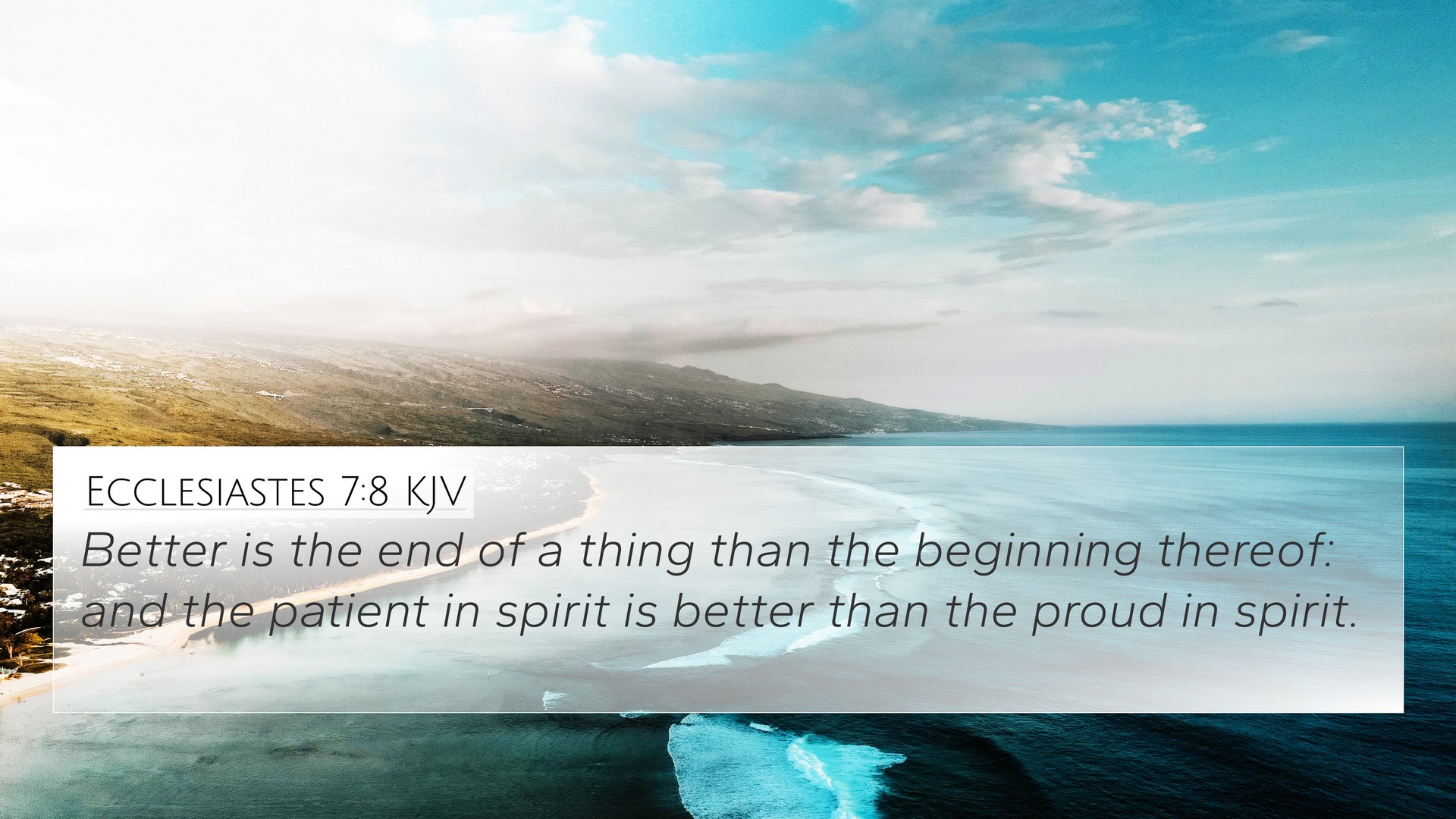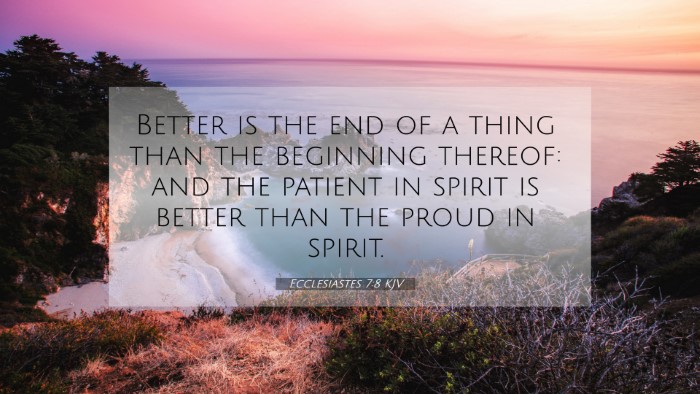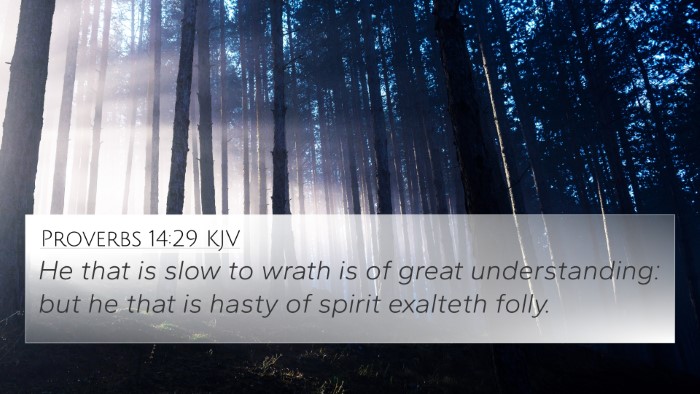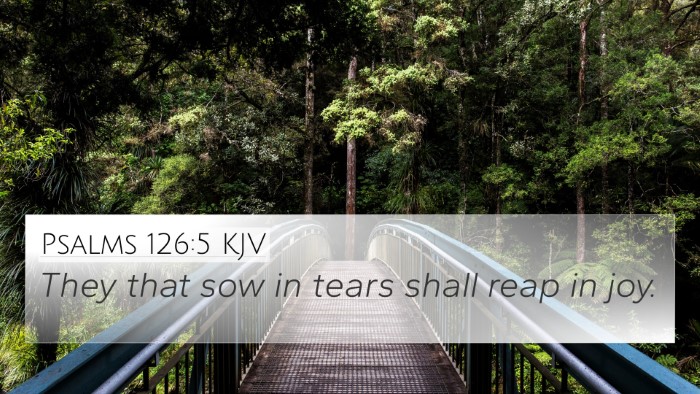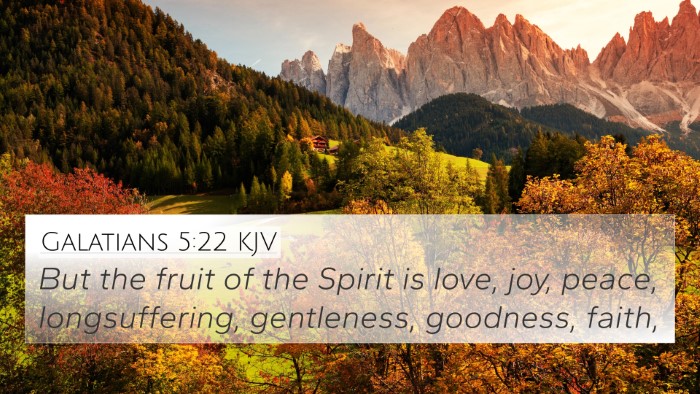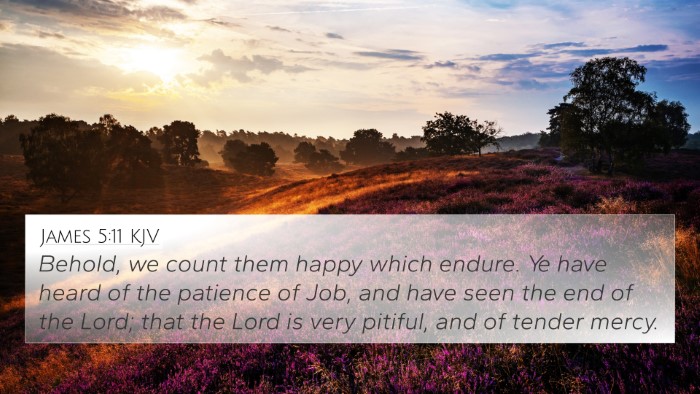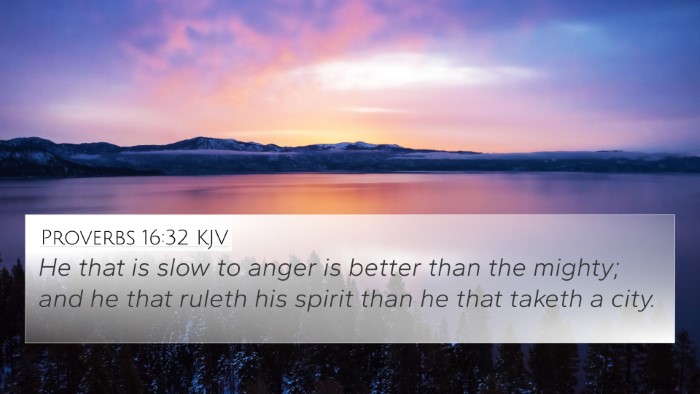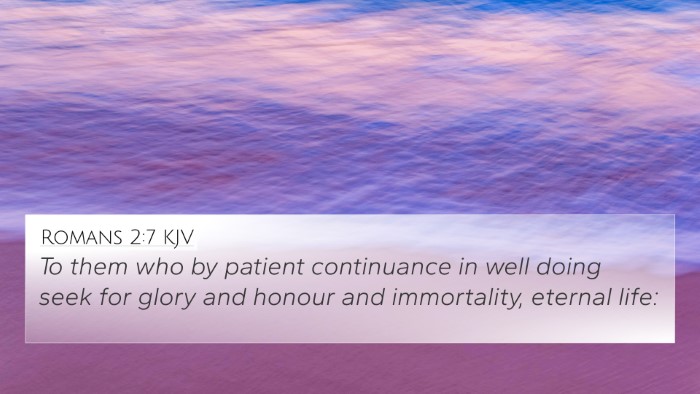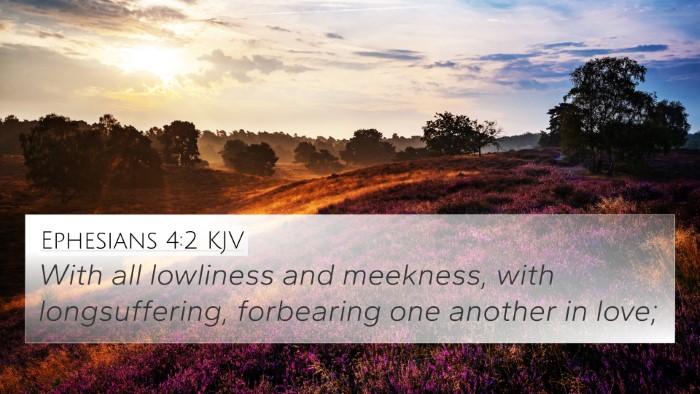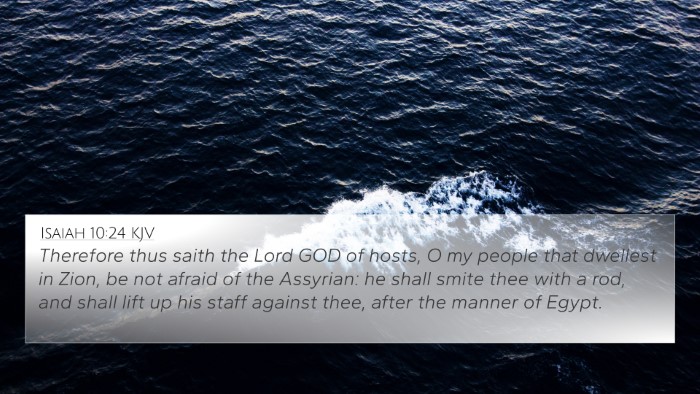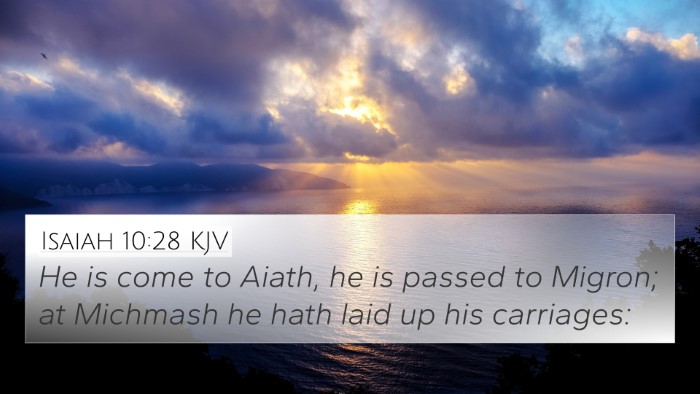Understanding Ecclesiastes 7:8
Ecclesiastes 7:8 states: “The end of a thing is better than its beginning; the patient in spirit is better than the proud in spirit.” This verse speaks deeply about the importance of perspective regarding life's journey and outcomes.
Summary of Meaning
This verse emphasizes two main ideas:
- The value of completion over initiation: The 'end' of a situation often yields greater wisdom, maturity, and fulfillment than the 'beginning'.
- The virtue of patience: Those who exhibit patience, even during challenging times, possess a quality superior to that of pride or arrogance.
Insights from Commentaries
Drawing from the public domain commentaries of Matthew Henry, Albert Barnes, and Adam Clarke, we can uncover a rich interpretation of this verse:
Matthew Henry's Commentary
Henry indicates that every beginning holds the promise of what is to come, yet it is in the finish where true understanding and satisfaction derive. He contrasts beginnings and endings, suggesting that starts may be filled with excitement, but the true measure of success is found in how things conclude.
Albert Barnes' Notes
Barnes elaborates on the necessity of patience and cautions against pride, indicating that a humble spirit recognizes that the journey's end is where true meaning manifests. He emphasizes that the trials faced along the way develop character and wisdom, making the eventual outcome that much more rewarding.
Adam Clarke's Commentary
Clarke points out that the passage can be understood in light of divine promotions and the fulfillment of God's plans. Patience leads to a greater reward, and humility will often lead to recognition at the end of one's efforts, reinforcing the concept that the long-suffering yields greater benefits than immediate elevation.
Connections to Other Bible Verses
To enhance understanding, here are some cross-references that illustrate parallel themes found in Ecclesiastes 7:8:
- Proverbs 16:32: "He who is slow to anger is better than the mighty, and he who rules his spirit than he who takes a city."
- James 1:2-4: "Consider it pure joy, my brothers and sisters, whenever you face trials of many kinds...so that you may be mature and complete, not lacking anything."
- Romans 5:3-5: "Not only that, but we rejoice in our sufferings, knowing that suffering produces endurance, and endurance produces character..."
- Philippians 3:13-14: "Forgetting what lies behind and straining forward to what lies ahead, I press on toward the goal..."
- 2 Corinthians 4:17: "For this light momentary affliction is preparing for us an eternal weight of glory beyond all comparison."
- Hebrews 12:1-2: "Let us run with endurance the race that is set before us, looking to Jesus, the founder and perfecter of our faith..."
- 1 Peter 5:6: "Humble yourselves, therefore, under the mighty hand of God so that at the proper time He may exalt you."
Thematic Bible Verse Connections
These verses collectively contribute to a broader understanding of how patience, humility, and endurance shape the Christian experience. The themes of life’s journeys, the character development through trials, and the eventual fulfillment reflect a consistent biblical message.
Tools for Bible Cross-Referencing
To dive deeper into understanding Ecclesiastes 7:8, the following tools for Bible cross-referencing can be beneficial:
- Bible concordance: A powerful tool for identifying verses that relate to one another.
- Bible cross-reference guide: Provides systematic connections between verses.
- Cross-reference Bible study: Methods and techniques for deeper scripts analysis.
- Bible reference resources: Various materials that assist in thematic connections.
Conclusion
In conclusion, Ecclesiastes 7:8 serves as a powerful reminder of the wisdom inherent in patience and the significance of endings. By cross-referencing various scriptures and utilizing study tools, believers can enrich their understanding of the transformative nature of traversing life’s challenges.
